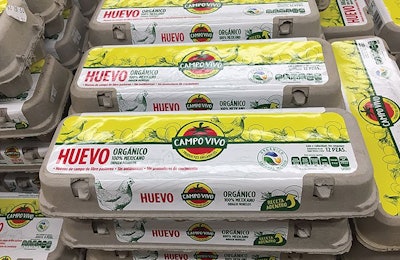
Last week, the Spanish interbranch organization of egg and egg products, Inprovo, had a session during the Spanish Animal Production trade show Figan, in which they talked about the need to have financial aids and more time to reconvert the whole industry to cage-free production systems. This is a consequence of the EU proposal to progressively eliminate cages in egg production.
The Spanish egg sector has made huge investments in the conversion. Costs have not been fully recoup in many instances. They estimate they need one billion euros, equivalent to the whole sector turnover in one year, to accomplish the goal. Besides aids, Spanish producers need to be sure they will be able to convey the cost increase to selling price. And all players in the supply chain (distribution, industry, food service) need to be involved and be accountable, as well as consumers, and reach to an agreement as a whole.
Spain has 47.1 million laying hens in production and it is the fourth largest producer in the EU. Just for the sake of comparison, Mexico's largest egg producer and second in the world, Proan, has 36 million hens and Bachoco, the second largest, has 13 million. These two producers together have more hens than Spain. Or Granja Mantiqueira in Brazil, with 11.5 million hens, has almost one-fourth.
So, even though Spain is part of the EU, immersed in this common market, they are asking for help. I wonder what could happen in Latin America without a common market, with huge disparities in weak currencies, namely all pesos, reals, bolivars, quetzals and so on, with so many different policies and governments. And no help at all.
I don't think we are ready, or even close, to have something like this. There have been some local attempts to propose bills and laws. Stop and think! Do not jeopardize the feasibility of the egg industry. Changing to cage-free will affect cost of protein without improving human nutrition or food safety.
Inprovo's director Enrique Díaz Yubero said: "It is essential to have a complete impact assessment, based on solid scientific and technical evidence, which helps to understand risks, costs and needs that the [new] standard implies for the sector". Nothing truer than this.
What do you think?
















